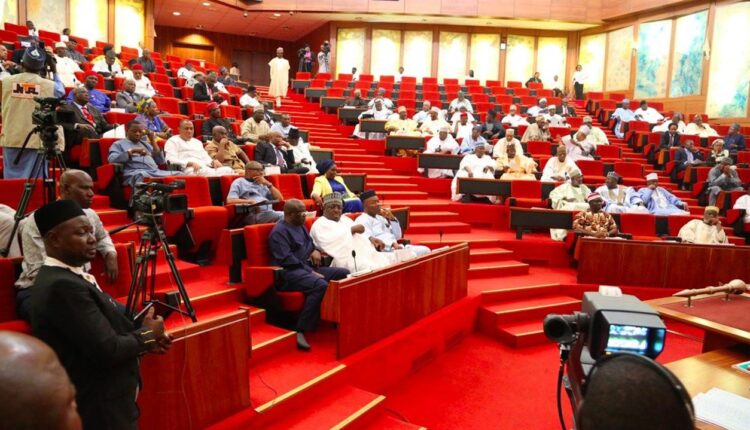National Assembly Joint Committee on Industry, Trade and Investment has criticised Nigeria’s border closure policy, describing it as ineffective in curbing cross-border banditry and smuggling, especially in states bordering Niger and Chad.
During a 2025 budget defence session with the Ministry of Industry, Trade and Investment yesterday in Abuja, the committee expressed concern over the continued porosity of the country’s supposedly closed borders.
The chairman of the Senate Committee on Industry, Senator Francis Adenigba Fadaunsi (PDP, Osun East), highlighted the inefficacy of the policy, calling for a reconsideration of the “technically closed” borders.
He pointed out that the withdrawal of Niger and Chad from the Economic Community of West African States (ECOWAS) and their subsequent border policies had worsened insecurity in affected Nigerian states and compounded economic challenges.
“Border closure is hampering the economic fortunes of the country. Rather than curb smuggling, it encourages it. For instance, in rice production alone, we have a shortfall of 4 million tonnes, with local producers only meeting 3 million tonnes of the 7 million tonnes required. This gap is being filled by smuggled rice,” he said.
Hon. Fatima Talba, representing Nangero/Potiskum Federal Constituency of Yobe State, echoed similar sentiments, noting that the borders remain porous despite the closure policy.
“As far as we are concerned, the borders are open, not closed. Criminals and goods continue to move freely. It is time to stop deceiving ourselves,” she said.
In his remarks on the border closure, Hon. Paul Kalejaiye, representing Ajeromi/Ifelodun Federal Constituency of Lagos State, questioned the inconsistency of the border closure policy. “Are all borders across the country closed, or is this policy being implemented selectively?” he asked.
The Joint Committee, led by Senator Suleiman Sadiq Umar (APC, Kwara North) urged the Minister of Industry, Trade, and Investment, Dr. Jumoke Oduwole, to liaise with the Presidency to find a sustainable solution.
Dr. Oduwole, while presenting the ministry’s budget proposal, revealed allocations of N3.8 billion for capital expenditure, N4.65 billion for personnel costs, N1.45 billion for overhead, and a projected revenue of N24 billion.
However, the committee flagged discrepancies in the documents, particularly a figure of N59 billion erroneously listed as payment for a N50 billion project, and asked the Ministry to correct the errors.
The session underscored the urgent need for Nigeria to reassess its border management policies to address the pressing issues of insecurity and economic sabotage.

